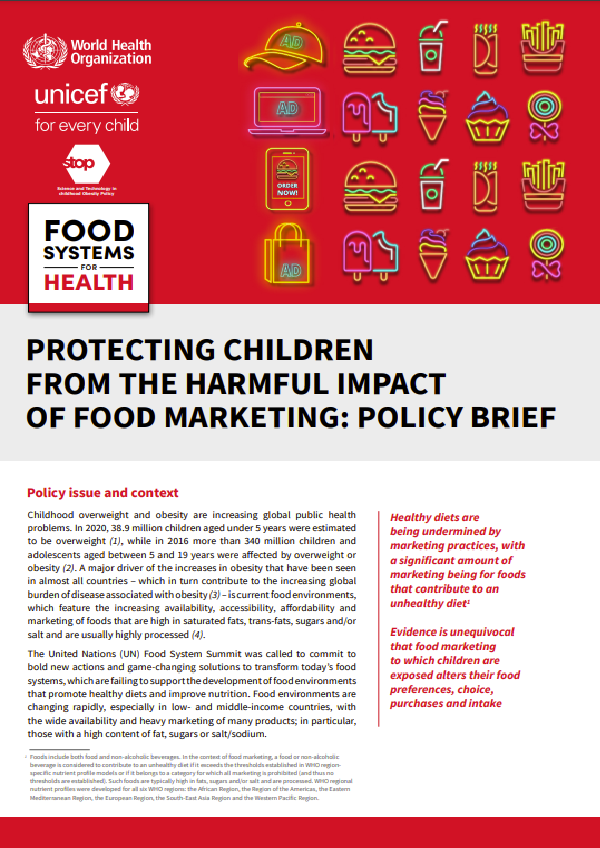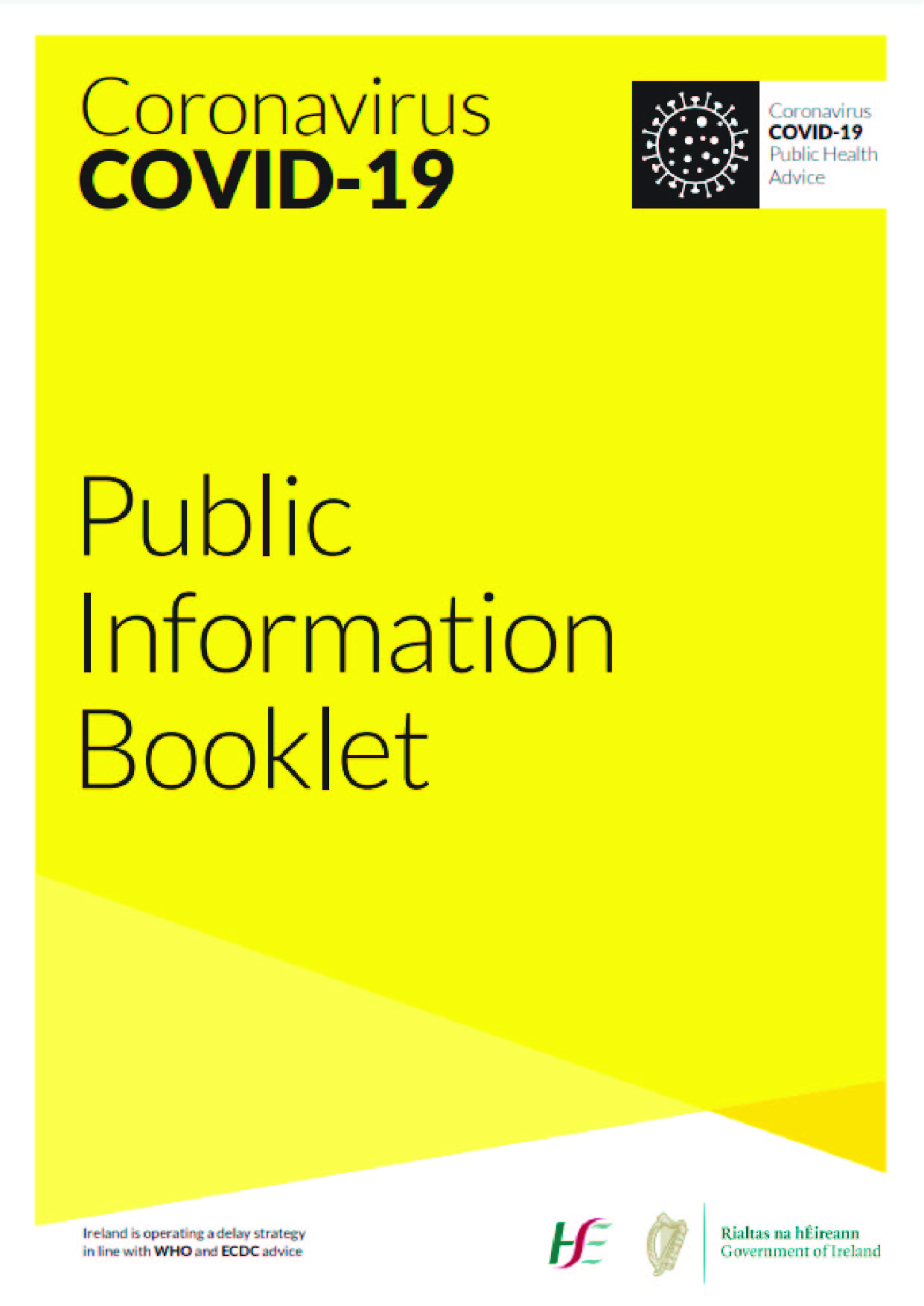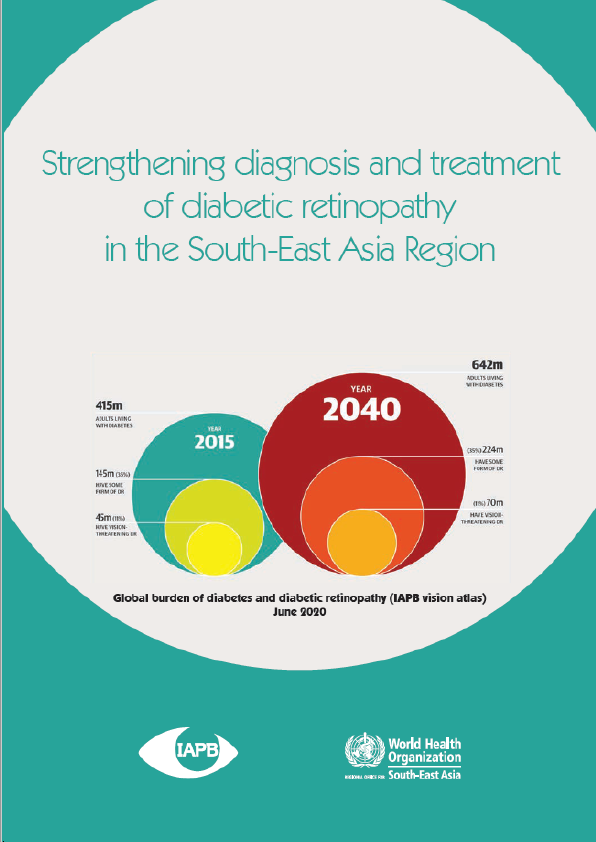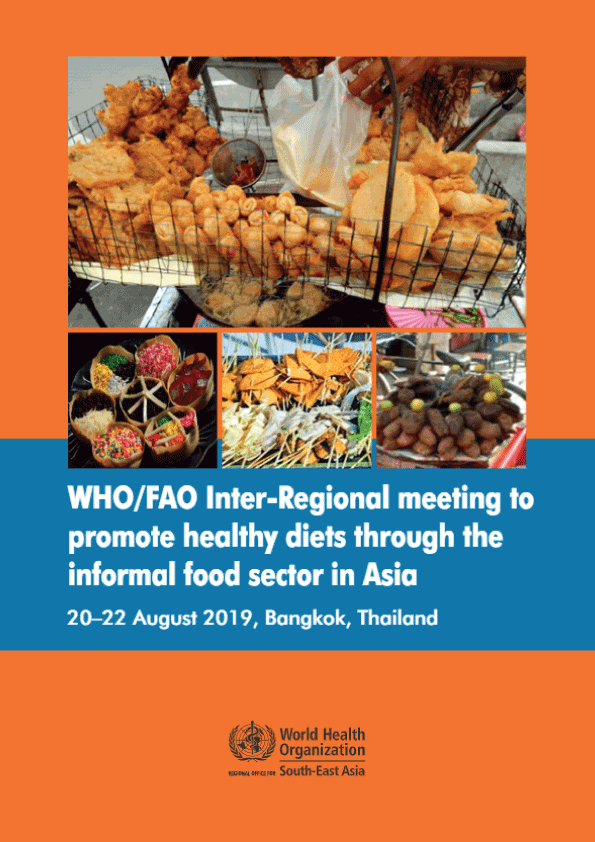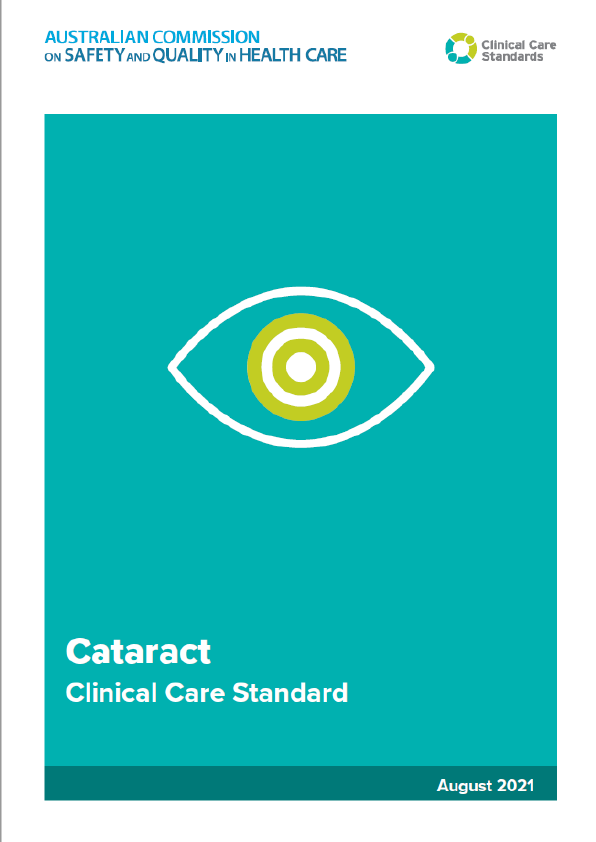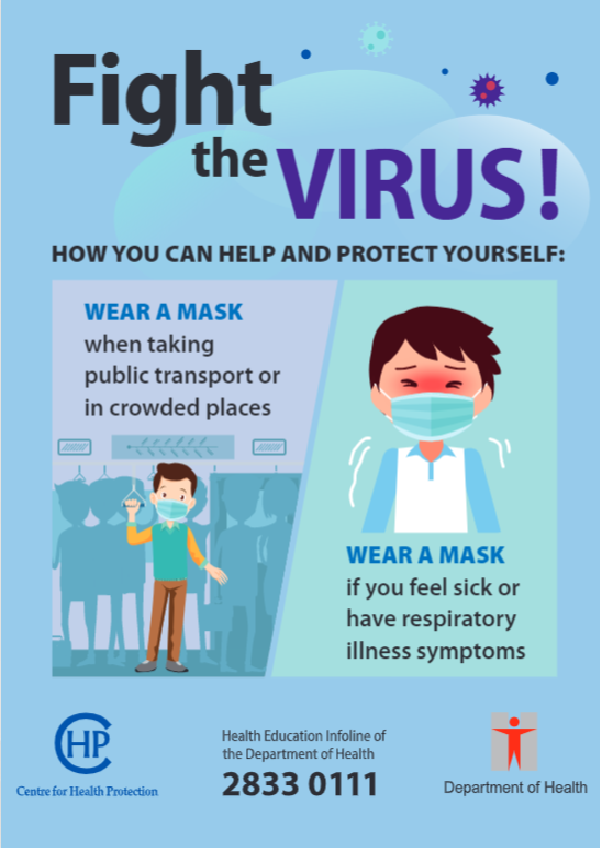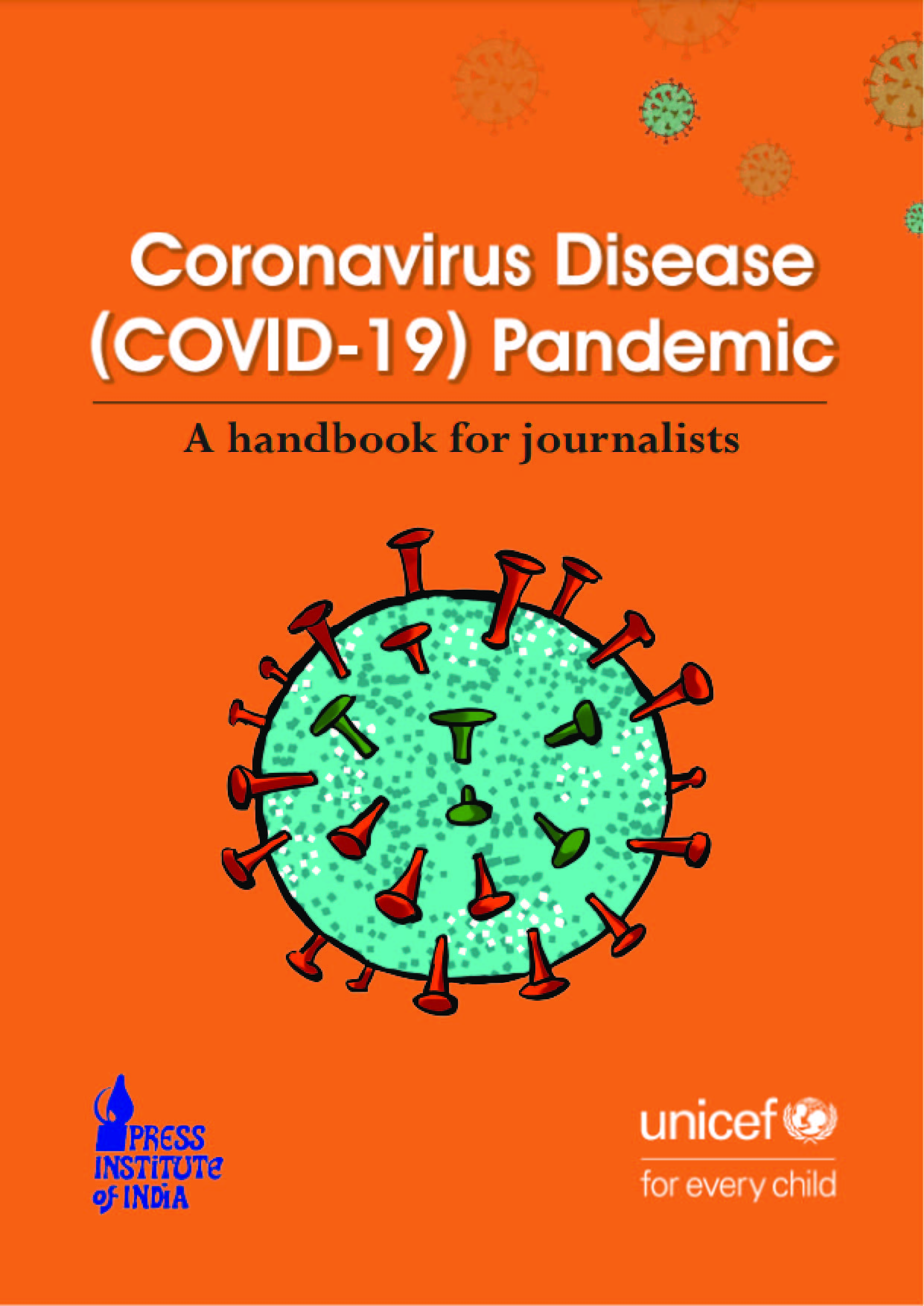Food marketing brings together the food producer and the consumer through a chain of marketing activities. This policy brief provides policy-makers and programme managers, health professionals and advocates with information and policy options to increase protection of children from the harmful impact of food marketing by reducing the power of, and exposure of children to, such marketing practices.
To mitigate the harmful impact of food marketing on children, governments are called upon to implement comprehensive policy approaches to restrict marketing of foods that contribute to an unhealthy diet, to reduce children’s exposure to such marketing and to reduce the power of such marketing, offering the best possible protection to all children. Comprehensive policy approaches have the potential to be sufficiently broad to restrict all forms of food marketing to which children are exposed, including cross border marketing.
Childhood overweight and obesity are increasing global public health problems. In 2020, 38.9 million children aged under 5 years were estimated to be overweight, while in 2016 more than 340 million children and adolescents aged between 5 and 19 years were affected by overweight or obesity. A major driver of the increases in obesity that have been seen in almost all countries – which in turn contribute to the increasing global burden of disease associated with obesity – is current food environments, which feature the increasing availability, accessibility, affordability and marketing of foods that are high in saturated fats, trans-fats, sugars and/or salt and are usually highly processed.
The United Nations (UN) Food System Summit was called to commit to bold new actions and game-changing solutions to transform today’s food systems, which are failing to support the development of food environments that promote healthy diets and improve nutrition. Food environments are changing rapidly, especially in low- and middle-income countries, with the wide availability and heavy marketing of many products; in particular, those with a high content of fat, sugars or salt/sodium.
Healthy diets are being undermined by marketing practices, with a significant amount of marketing being for foods that contribute to an unhealthy diet1 (5, 6). Evidence is unequivocal that food marketing to which children are exposed alters their food preferences, choice, purchases and intake (7-11). Food marketing also threatens children’s rights, affecting their physical health as well as their emotional, mental and spiritual well-being (12, 13). Therefore, as noted by the commission set up by the World Health Organization (WHO), the United Nations Children’s Fund (UNICEF) and the Lancet (the WHO–UNICEF– Lancet Commission) (12), “commercial governance” is essential to protect children from harmful marketing that encourages unhealthy diets.
This policy brief provides policy-makers and programme managers, health professionals and advocates with information and policy options to increase protection of children from the harmful impact of food marketing by reducing the power of, and exposure to children of, such marketing practices.
Background
The need to protect children from the harmful impact of food marketing and to enable children to develop healthy food values and preferences has long been recognized. In 2010, the Sixty-third World Health Assembly unanimously endorsed the WHO Set of recommendations on the marketing of foods and nonalcoholic beverages to children (14), recognizing that a significant amount of marketing is for foods high in fats, sugars or salt and is widespread across the world. Resolution WHA63.14 on the marketing of food and non-alcoholic beverages to children (15) urges Member States to take the necessary measures to implement the set of recommendations, and to identify the most suitable policy approach given national circumstances. As noted in the set of recommendations, governments are in the best position to set direction and overall strategy to achieve population-wide public health goals, and should therefore set the scope of a country’s marketing restriction.
